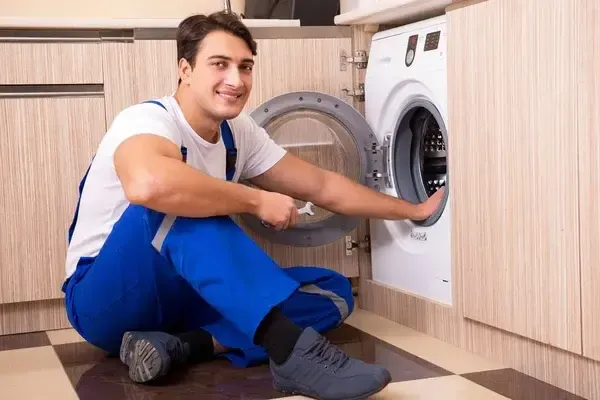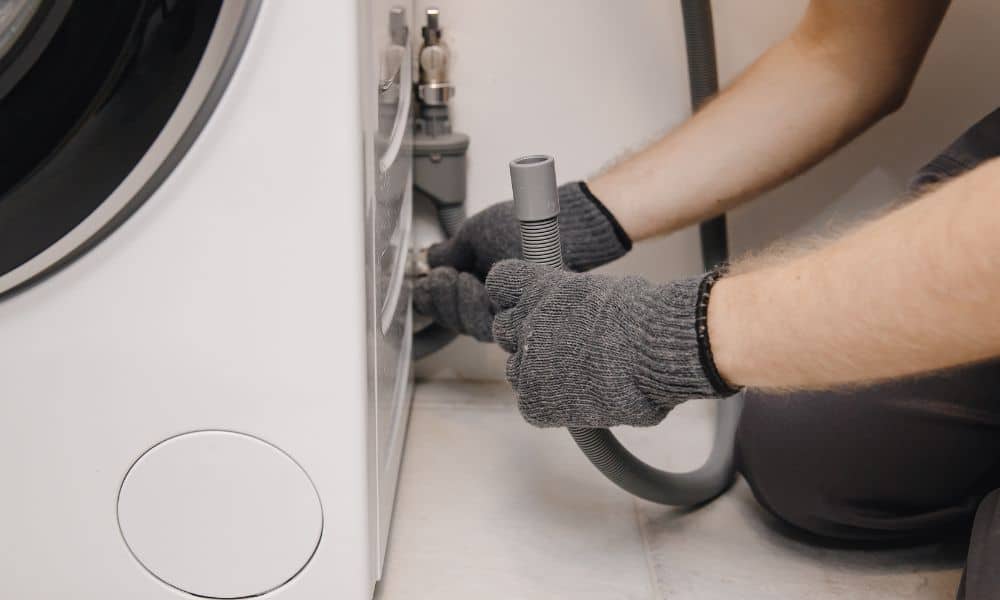A clogged washing machine drain is a frustrating problem that many homeowners in Cleveland face. A blockage can cause water to back up into your laundry area, leading to potential water damage, unpleasant odors, and an unusable washing machine. Fortunately, there are several emergency tips you can follow to address the issue quickly and effectively. This article provides a guide on what to do if you find yourself dealing with a Washing Machine Drain Clogged Cleveland.
1. Stop The Machine And Power Down
The first thing you should do when you notice your washing machine drain is clogged is to stop the machine immediately. If water is backing up, continuing the cycle could lead to flooding. Turn off the machine, unplug it from the electrical outlet, and remove any wet laundry. This will help prevent further damage and give you a clear area to work in.
2. Identify The Source Of The Clog
Before you can fix the problem, you need to identify where the clog is located. Washing machine drain clogs typically occur in one of three places: the drain hose, the pump filter, or the main sewer line.
- Drain Hose: The most common source of a clog is the drain hose, which connects the washing machine to the plumbing system. Over time, lint, hair, and debris can accumulate in the hose, creating a blockage.
- Pump Filter: Many washing machines have a pump filter designed to catch debris before it enters the drain. If the filter becomes clogged, water won’t be able to drain properly.
- Main Sewer Line: In some cases, the clog might be in the main sewer line, especially if other drains in your home are also slow or backing up.
3. Check The Drain Hose
Disconnecting the drain line from the plumbing system and the washing machine is the first step in determining whether it is clogged. Place a bucket under the hose to catch any water that might spill out. Inspect the hose for any visible obstructions, such as lint or hair, and use a long brush or a plumber’s snake to clear any blockages. After cleaning the hose, reconnect it and see if the machine drains properly.
4. Clean The Pump Filter
The pump filter needs to be checked next if the drain hose isn’t the issue. Most washing machines feature a removable access panel located near the bottom to reach the filter. Before opening the filter, place a towel or a shallow pan underneath to catch any water that may spill out. Take off the filter and clean it thoroughly to get rid of any dirt that might be clogging it up. Once the filter is clean, reassemble the machine and test the drain.

5. Use A Drain Cleaner Or Plunger
If the clog is not in the hose or filter, it may be deeper in the plumbing system. In this case, you can try using a drain cleaner specifically designed for washing machines. Following the manufacturer’s recommendations, pour the cleaner down the drain and allow it to sit for the advised amount of time before flushing it out with hot water. As an alternative, try clearing the obstruction with a plunger. Using firm, steady pushes, place the plunger over the drain opening to create suction and dislodge the obstruction.
6. Call A Professional Plumber
If you’ve tried the above steps and the drain is still clogged, it’s time to call a professional plumber. To clear up a chronic blockage in the washing machine drain or a clog in the main sewage system, you might need specific equipment and knowledge. Cleveland plumbers are skilled in handling these situations and can identify and resolve the issue fast, saving additional harm to your house.
7. Prevent Future Clogs
After the immediate issue has been remedied, take precautions to avoid clogs in the future. Regularly clean the pump filter and inspect the drain hose for any buildup of debris. Consider using a lint trap on the end of the drain hose to catch fibers before they enter the plumbing system. Furthermore, keep in mind that overloading your washing machine might lead to an accumulation of extra lint and debris.
Conclusion
Dealing with a clogged washing machine drain can be a stressful experience, but with the right approach, you can address the issue quickly and effectively. By following these emergency tips, you can prevent water damage, maintain the functionality of your washing machine, and keep your home in Cleveland running smoothly. Remember, if the problem persists, don’t hesitate to contact a professional plumber for assistance. Regular maintenance and prompt action will help ensure that your washing machine drain remains clear and functional.

